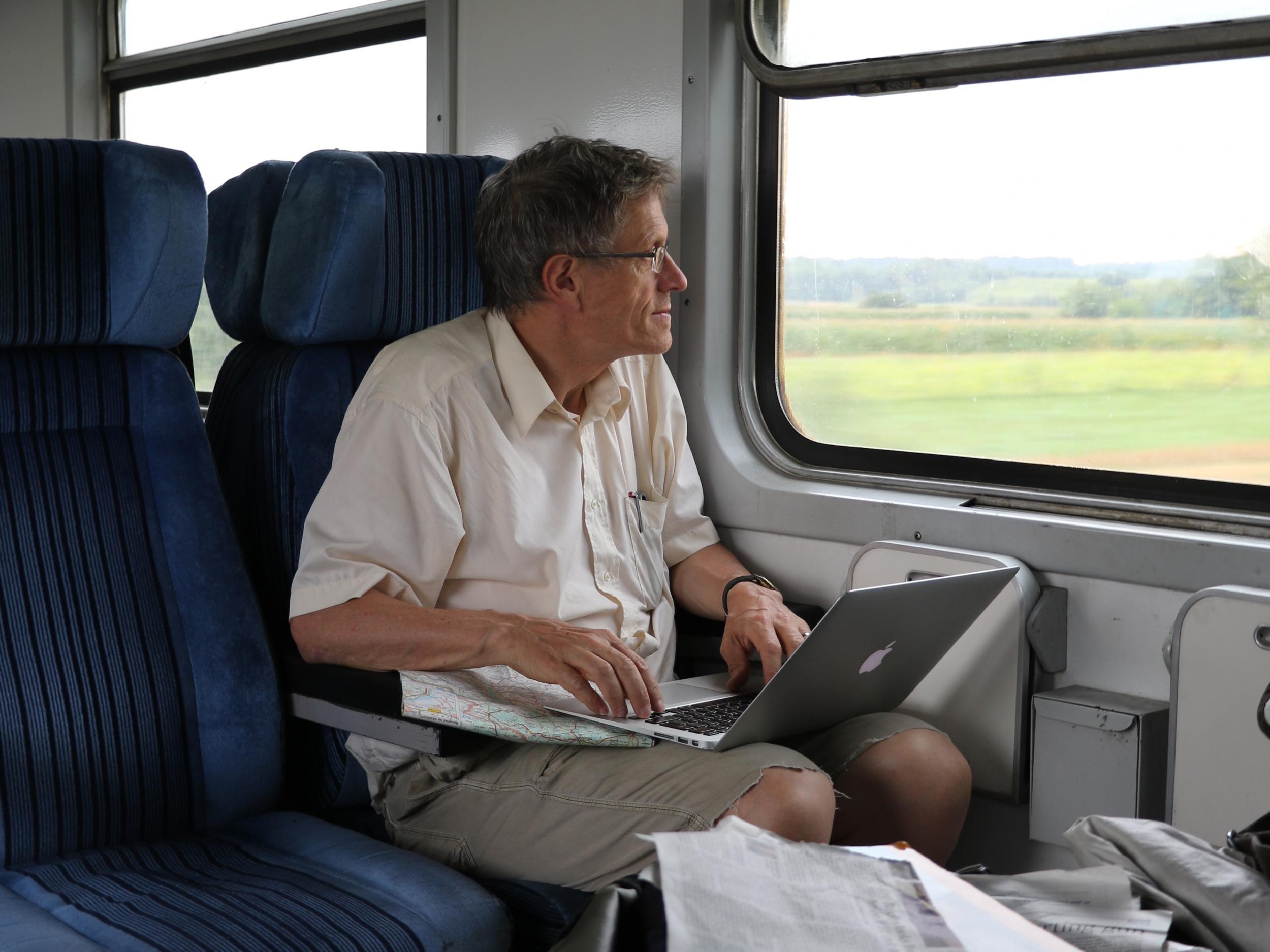Murder (of crows) on the Orient Express: a weird and wonderful journey through the Balkans
The Man Who Pays His Way

It’s not exactly the Orient Express in terms of luxury, but the scenery is first class. The foreground is a field of corn, performing its annual miracle of turning sunshine into gold. The background is full of foreboding, with the setting sun trying to prise open the storm clouds that seem to be travelling slightly faster than the train. Yet it is a lot closer to the Orient Express than you might think, because I am aboard the Balkan Express – following part of the classic route between Paris and Constantinople (now Istanbul).
Here’s the idea. This summer, the UK voted to revert to the 20th century, choosing fragmentation over unity. One immediate effect was to punish the pound, taking us back to the time in the mid-Eighties when a coffee in the sun on the terrace in a European city seemed to cost half a day’s pay.
So I decided to make a journey through the part of Europe where you can experience what trans-Continental travel was like before the Schengen agreement on open borders, before the single currency – and before the internet told you everything you needed to know to plan your travels with exactitude.
All this week I have been travelling through the western Balkans. I started on the sparkling shores of Lake Ohrid, where the mountains of Macedonia and Albania jostle for supremacy. Then I travelled the length of Serbia from the deep south to the profoundly Hungarian-influenced north before swerving west into Slavonia – the easternmost province of Croatia, and related to Slovenia and Slovakia only alphabetically.
At every border, two sets of officials (one from the nation I was leaving, followed by their counterparts from the county I was entering) furrowed their brows as they studied a passport from a nation that wants to be alone.
My wallet has an interesting collection of tattered banknotes chronicling a range of almost-forgotten heroic achievements. I pressed my last Albanian leke into the hand of the taxi driver who guided me across the border into Macedonia – whose local dinar is held in such disdain that my surplus of a few hundred was flatly turned down by the first bureau de change in Serbia. "We don't need those," the manager said gruffly.
Accommodation has been never short of intriguing and cheap (as well as consistently clean and comfortable): the last available attic apartment in the town of Ohrid on a holiday weekend, the London B&B on the main square in Skopje, and the Best Kebab shop in Subotica. That last place wasn’t a dorm among the doners, but some rooms (sobe) rented out by the owner for a low price. He seemed baffled when I suggested the slogan “Puts the ‘pitta’ in pittance”.
My wallet has an interesting collection of tattered banknotes chronocling a range of almost-forgotten heroic achievements
Twenty-first century travellers may be baffled by public transport in the Balkans. Forget researching bus departure times online. Instead, get to the bus station first thing in the morning (preferably with the wherewithal to decode destinations from the Cyrillic alphabet), and scribble down the schedule.
Yet you need to stay flexible. While timetable boards and staff are good at knowing departure times, they make no promises about when you might arrive in your destination. On international journeys, such reticence is understandable: there is no telling how long a border crossing might take. The Nis Express coach from Skopje reached the Serbian frontier less than a minute after the weirdest bus in Europe, and we were stuck in no-man’s land for an hour. (That weird bus, by the way, operates a scheduled service between Struga, a small town at the north end of Lake Ohrid in Macedonia, via Wuppertal, to the small town of Bielefeld in western Germany,)
In contrast, Balkan rail operators stipulate to the minute when you will leave and arrive – then dispatch trains that stutter uncertainly to their destination several hours late. According to Mark Smith, the rail guru who runs the online guide to international train travel, Seat61.com, the problem is investment: “Bulgarian Railways are probably the most cash-starved network in Europe, closely followed by Serbia. OK, perhaps Albania pips them to the post.”
Back here on the Balkan Express, a tractor overtook us a few miles back, and now dozens of crows are taunting us by doing the same: an actual murder (the collective noun for the birds) on the line of the Orient Express. Time and motion are fluid in this part of the world, and the traveller needs to be equally flexible. The rewards are superb cuisine, intriguing culture, dreadful pop music and some of the friendliest people on the planet – all for a price that even the British can afford.
Subscribe to Independent Premium to bookmark this article
Want to bookmark your favourite articles and stories to read or reference later? Start your Independent Premium subscription today.

Join our commenting forum
Join thought-provoking conversations, follow other Independent readers and see their replies